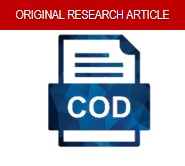Distribution of Inheritance to Daughters According to Byak's Indigenous Law
DOI:
https://doi.org/10.46924/jihk.v1i2.122Keywords:
The Inheritance Distribution, Inheritance For Girls, Byak Traditional LawAbstract
This study aims to analyze the process of the inheritance distribution for girls and the factors that affects the development of girls' inheritance rights in terms of Byak Traditional law. This research is empirical juridical research. It was conducted in Inggiri Village, Biak-Papua. The analysis was carried out in a qualitative descriptive technique. The results showed that 1) The process of the inheritance distribution for occurs when the heir has died, where the position of the heir is taken over automatically to the heirs who are part of the clan (keret) or biological children. The girls can be given inheritance (Kayan) on condition that a traditional ceremony (Wor) is carried out as a traditional recognition but gets a smaller share than boys as the successors of the family's descendants (Keret). 2) The factors that influence the development of the inheritance rights are economic factors, educational factors, and social factors. The most prominent is educational factors because civilization and the society gradually develop following a more advanced education standard and religion as a facilitating intercommunication.
Downloads
References
Jurnal
Arliman, Laurensius. “Hukum Adat Di Indonesia Dalam Pandangan Para Ahli Dan Konsep Pemberlakuannya Di Indonesia.” Jurnal Selat 5, no. 2 (2018): 177–90. https://doi.org/10.31629/selat.v5i2.320.
Buana, Andika Prawira, Syamsuddin Pasamai, Sufirman Rahman, and Hamza Baharuddin. “Konseptualisasi Lembaga Peradilan Adat Di Sulawesi Selatan.” Arena Hukum 12, no. 2 (2019): 318–36. https://doi.org/10.21776/ub.arenahukum.2019.01202.6.
Nasution, Adelina. “Pluralisme Hukum Waris Di Indonesia.” Al-Qadha: Jurnal Hukum Islam Dan Perundang-Undangan 5, no. 1 (2018): 20–30. https://journal.iainlangsa.ac.id/index.php/qadha/article/view/957.
Prasna, Adeb Davega. “Pewarisan Harta Di Minangkabau Dalam Perspektif Kompilasi Hukum Islam.” Kordinat 17, no. 1 (2018): 29–64. https://doi.org/10.15408/kordinat.v17i1.8094.
Rahman, Fathor. “Eksistensi Peradilan Adat Dalam Peraturan Perundangan-Undangan Di Indonesia.” Jurnal Hukum Samudra Keadilan 13, no. 2 (2018): 65–70. https://doi.org/10.33059/jhsk.v13i2.1066.
Soerjono, Soekanto. “Kedudukan Dan Peranan Hukum Adat Dalam Pembangunan.” Jurnal Hukum & Pembangunan 15, no. 5 (2017): 466. https://doi.org/10.21143/jhp.vol15.no5.1168.
Syahputra, Candra Maulidi, and Labib Renedy Crisdianto. “Eksistensi Masyarakat Hukum Adat Dalam Menghadapi Tantangan Era Revolusi Industri 4.0.” Simposium Hukum Indonesia 1, no. 1 (2019). https://journal.trunojoyo.ac.id/shi/article/view/6386.
Tambi, Muhamad Faisal. “Studi Komparasi Pembagian Warisan Menurut Hukum Islam Dan Hukum Adat.” Lex Privatum 6, no. 9 (2018): 44–51. https://ejournal.unsrat.ac.id/index.php/lexprivatum/article/view/25824.
Wahyuni, Afidah. “Sistem Waris Dalam Perspektif Islam Dan Peraturan Perundang-Undangan
Di Indonesia.” SALAM; Jurnal Sosial & Budaya Syar-I 5, no. 2 (2018): 147–60. https://doi.org/10.15408/sjsbs.v5i2.9412.
Wiratraman, Herlambang P. “Perkembangan Politik Hukum Peradilan Adat.” Mimbar Hukum 30, no. 3 (2018): 490–505. https://doi.org/10.22146/jmh.38241.
Buku
Muhammad, Bushar. Pokok-Pokok Hukum Adat. Jakarta: PT Balai Pustaka, 2013.
Poespasari, Ellyne Dwi. Pemahaman Seputar Hukum Waris Adat Di Indonesia. Jakarta: Prenadamedia Group, 2018.
Soekanto, Soerjono. Hukum Adat Indonesia. Jakarta: PT Raja Grafindo Persada., 2013.
Sulastri, Dewi. Pengantar Hukum Adat. Bandung: Pustaka Setia, 2015.
Utomo, Laksanto. Hukum Adat. Jakarta: PT Raja Grafindo Persada, 2016.
Peraturan Perundang-undangan
Balai Penelitian Hukum Setda Papua. Keputusan Kepala Balai Penelitian Hukum Setda Provinsi Papua tentang eksistensi Hukum Adat Byak. (2008).
Wawancara
Dewan Adat Biak. “Wawancara Ketua Dewan Adat Biak.” 2017.
Sroyer, Apolos. “Wawancara Ketua Adat Bar Kampung Sorido.” 2017.
———. “Wawancara Mananwir Mnu Kampung Inggiri.” 2017.
Downloads
Published
Issue
Section
License
Authors who publish with this journal agree to the following terms:
- Copyright on any article is retained by the author(s).
- The author grants the journal, the right of first publication with the work simultaneously licensed under a Creative Commons Attribution License that allows others to share the work with an acknowledgment of the work’s authorship and initial publication in this journal.
- Authors are able to enter into separate, additional contractual arrangements for the non-exclusive distribution of the journal’s published version of the work (e.g., post it to an institutional repository or publish it in a book), with an acknowledgment of its initial publication in this journal.
- Authors are permitted and encouraged to post their work online (e.g., in institutional repositories or on their website) prior to and during the submission process, as it can lead to productive exchanges, as well as earlier and greater citation of published work.
- The article and any associated published material is distributed under the Creative Commons Attribution 4.0 International License




 Sinta ID:
Sinta ID: 


















